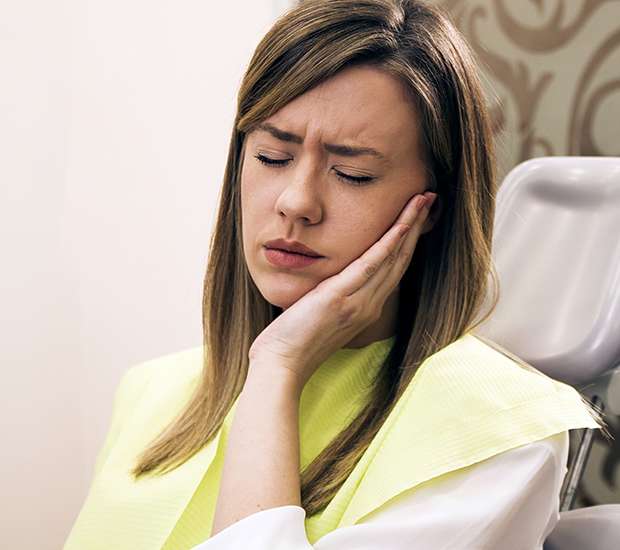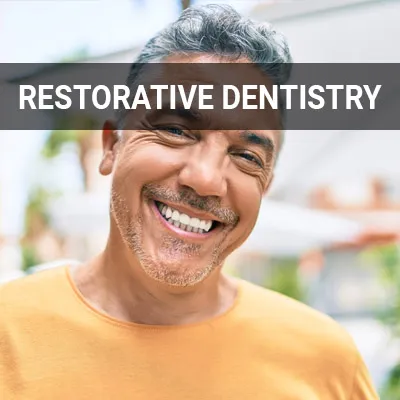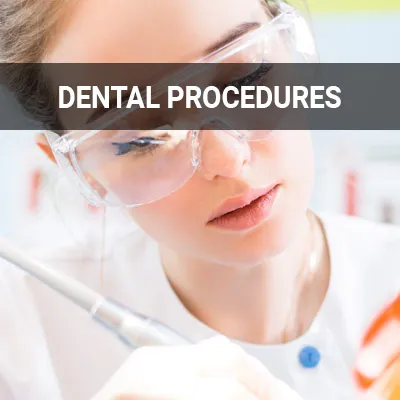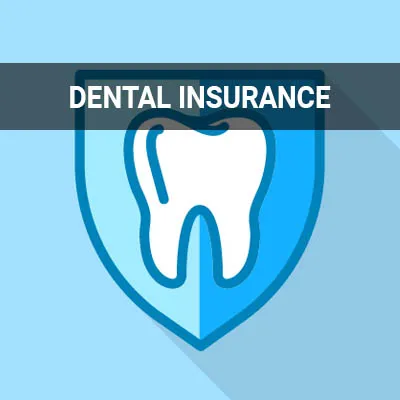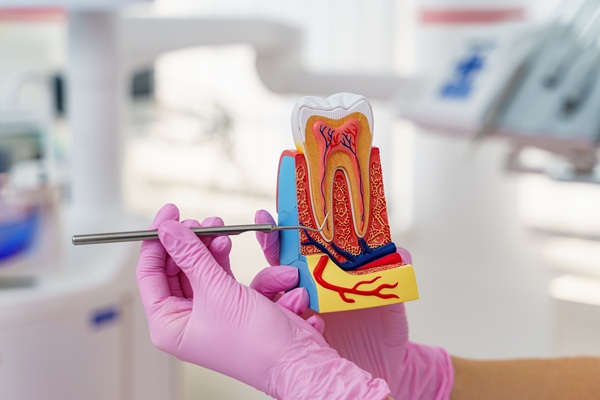TMJ Dentist Port Saint Lucie, FL
Temporomandibular joints, or TMJ, are responsible for opening and closing the mouth. TMJ dentist treatment can help patients find relief for jaw discomfort, soreness, and pain. The term refers to the jaw as well as nerves, muscles, and ligaments connected to it.
TMJ dentist treatment is available at Dino Dental in Port Saint Lucie and the surrounding area. Our team of dental professionals performs a careful evaluation to understand what may be contributing to the patient's TMJ pain. To schedule a personal evaluation and get started with TMJ treatment, call (772) 621-2123 right away.
Causes of TMJ
The source of the problem with TMD is the jawbone at the temporomandibular joint. The temporal bones are in the front sides of the face, underneath the ears. These bones connect to the jaw. This pair of joints act as a hinge to allow the jawbone to open and close. In addition, several muscles support the joint that works to help the mouth function.
There are many possible reasons why patients suffer from TMD. Patients with arthritis, bruxism, high stress levels, poor posture, or misalignment of the bite may have TMD. Certain habits, like constant gum chewing, also sometimes lead to the disorder.
According to the National Institue of Dental and Caniofacial Research, some estimates indicate that TMJ disorders affect over 10 million Americans. In addition, patients with TMD may have problems with arthritis at the joint, jaw muscle pain, or misalignment. A TMJ dentist has the right knowledge and understanding to treat this disorder and relieve pain and alignment.
“There are many possible reasons why patients suffer from TMD.”
Temporomandibular Disorders (TMD)
Damage to the individual components of TMJ can lead to several serious problems. These include:
- Intense headaches
- Ear pain
- Chronic TMJ pain
- Tense facial muscles
- Inability to open or close the mouth
These conditions are known as temporomandibular disorders or TMD. Many people call them TMJ, though. A TMJ dentist understands how to alleviate joint pain symptoms using a combination of physical therapy, anti-inflammatory medications, and advanced treatment options.
“These conditions are known as temporomandibular disorders or TMD.”
When to See a TMJ Dentist
There are numerous signs that a patient might suffer from TMD and should see a TMJ dentist. Jaw pain, headaches, ear pain, sore jaw muscles, and clicking or popping in the jaw are symptoms of TMD. Seeing a skilled TMJ dentist helps patients determine the cause of these concerns. However, TMD symptoms are also common symptoms of other disorders, so it is important to get a medical professional's advice before determining if it may be TMD.
According to the National Institute of Dental Craniofacial Research, there is no one diagnostic test for TMD. The TMJ dentist reviews medical and dental histories and usually takes X-rays to make a diagnosis. Then, the dentist conducts an oral exam to discover what the source of pain may be.
“Jaw pain, headaches, ear pain, sore jaw muscles, and clicking or popping in the jaw are symptoms of TMD.”
Check out what others are saying about our dental services on Yelp: TMJ Dentist in Port Saint Lucie, FL
Common Disorders Treated by a TMJ Dentist
TMJ dentists may also treat other jaw or tooth pain conditions besides TMD. Patients complaining of jaw pain may also suffer from different types of jaw disorders. Although jaw pain is one of the most common signs of TMD, there are other conditions where this is a symptom.
Jaw pain may also signal a cavity, abscess, sensitive teeth, or gum disease. In addition, heart disease, arthritis, and many other conditions may also exhibit jaw pain. A TMJ dentist can treat these conditions or refer the patient out to a specialist as necessary.
“TMJ dentists may also treat other jaw or tooth pain conditions besides TMD.”
Questions Answered on This Page
Q. What is a temporomandibular disorder or TMD?
Q. What are the causes of TMJ?
Q. When should I see a TMJ dentist?
Q. What common disorders are treated by a TMJ dentist?
Q. What should I discuss with a TMJ dentist?
People Also Ask
Q. Beyond regular checkups, what additional procedures might a dentist recommend?
Q. How do lifestyle choices affect dental health?
Q. How do I use social media to find a dentist?
Q. What other preventative services are available?
Q. What is the difference between a dental checkup and a dental cleaning?
What To Discuss With a TMJ Dentist
It is important for patients to discuss their symptoms in as much detail as possible with their TMJ dentist. For example, they may want to note when their symptoms began, if they have ever undergone TMD in the past, whether their level of stress has increased recently, and what medications and supplements they take regularly. It is also significant to note if patients have frequent headaches, neck aches, or toothaches.
TMJ patients should also be prepared to answer whether their pain has been constant or intermittent, triggered by activity, or if the jaw clicks or pops when moved. In addition, patients should note if this clicking is painful or if it is difficult to open their mouth normally. With this information, a TMJ dentist can make the most informed decision about a patient's diagnosis and treatment.
“It is important for patients to discuss their symptoms in as much detail as they can with their TMJ dentist.”
Frequently Asked Questions
Q. How can I prevent TMJ?
A. There is no way to prevent this disorder completely, but some habits help relieve jaw stress and fatigue. TMJ dentist patients should pay special attention to their posture and practice better habits when working and sitting. Avoiding hard-to-chew foods, stretching regularly, and massaging the cheeks and jaws may help relieve jaw pain.
Q. How do I relieve TMJ symptoms at home?
A. Home remedies may not cure TMD, but some measures can help reduce the discomfort. For example, ice or heat may help with serious pain or swelling. Reducing stress and trying relaxation techniques may also help. For more at-home tips, see the TMJ dentist.
Q. Do weather changes make TMJ worse?
A. Some patients find that certain weather conditions make TMD pain worse. Winter weather, such as snow or ice, and the drier conditions in the air sometimes impact TMD pain levels. It is important to talk to the TMJ dentist for treatment options if the pain intensifies.
Q. Will the TMJ dentist recommend surgery?
A. While there are some surgical options for TMD pain, most patients get relief without invasive treatment. In some cases, the dentist may talk to the patient about surgery. Surgical options aim to correct physiological issues causing joint dysfunction.
Q. Can my primary care physician treat TMJ?
A. Patients with TMD pain may have more positive outcomes if they also see a TMJ dentist. A dental professional with experience treating TMD can often recommend effective treatment options for patients. The dentist partners with the patient's primary care physician to design the right treatment.
Dental Terminology
Call Us Today
Are you having trouble opening and closing your mouth or experiencing headaches? If you think you may have a TMJ disorder, call us at 772-621-2123 to schedule an evaluation right away.
Helpful Related Links
- American Dental Association (ADA). Glossary of Dental Clinical Terms. 2025
- American Academy of Cosmetic Dentistry® (AACD). Home Page. 2025
- WebMD. WebMD’s Oral Care Guide. 2025
About our business, license, and website security
- Dino Dental was established in 2025.
- We accept the following payment methods: American Express, Cash, Discover, MasterCard, and Visa
- We serve patients from the following counties: St. Lucie County, and Palm Beach County
- We serve patients from the following cities: Port Saint Lucie, Fort Pierce, Jupiter, White City, and Saint Lucie
- FL (License #DN16583). View License Information and Specifics
- National Provider Identifier Database (1548421340). View NPI Registry Information
- Norton Safe Web. View Details
- Trend Micro Site Safety Center. View Details
Back to top of TMJ Dentist
